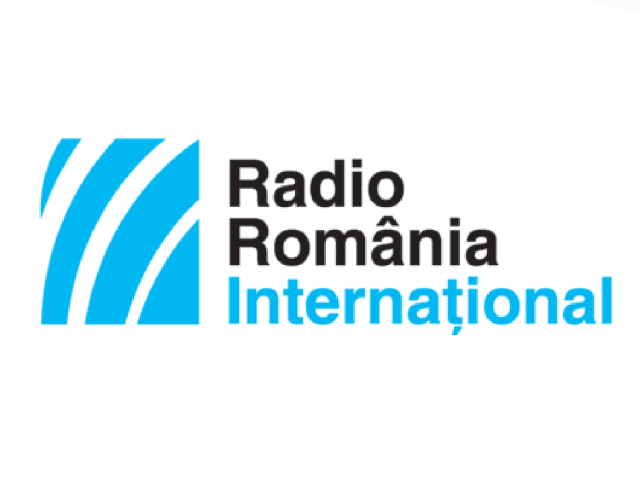The communist regime and its literacy campaign
One of the achievements the communist regime was most proud of was the eradication of illiteracy.

Steliu Lambru, 20.03.2020, 14:00
Education was of one of the obsessions of a regime
that wanted to enlighten and emancipate the people. Communism saw illiteracy as
a major disadvantage of the lower classes compared with the middle and upper
classes.
On 23rd August 1944, Romania withdrew from
its alliance with Germany and Italy and joined the United Nations. One week
later, on 31st August, the Soviet army entered Bucharest, an event
that would be a turning point in Romania’s contemporary history. The communist
and pro-communist press began speaking of the need to eradicate illiteracy.
According to Scânteia, the official newspaper of the Romanian Communist
Party, illiteracy levels in the rural area and in small towns stood at 49%. The
authors of these articles and, later, the communist leaders presented this
situation in a tendentious manner, making it sound as if there were no earlier
efforts to fight illiteracy. The communists used to accuse the former
democratic governments of intentionally discriminating against the lower
classes and of blocking education in the rural areas.
Historian Cristian Vasile from the Nicolae Iorga
Institute of History in Bucharest has been studying the literacy programme
carried out by the communist regime in its early years:
Beginning at the end of 1947, the campaign to combat
illiteracy became for the communist leadership an important component of the
Cultural Revolution of Soviet extraction. The Stalinist propaganda claimed that
in its wake no one was illiterate any more in the USSR, something also claimed
to be true in Romania. Mihail Roller was not only a leading historian, but also
a theoretician of education after the Soviet model. He even wrote a book about
Soviet pedagogy and how it can be implemented in Romania.
Illiteracy is an immense obstacle to the proletariat’s
achieving leading positions in the country and to the building of socialism and
communism. An illiterate person is one who is excluded from political life,
read a manifesto of cultural propaganda, using oversimplifying and misleading
rhetoric. The installation of Petru Groza’s communist government on 6th
March 1945 paved the way for a widespread literacy campaign in Romanian
villages. The education ministry and the culture ministry were put in charge of
expanding the school network in the countryside and giving all children access
to education.
Literacy was also promoted through films, visual
propaganda and works of art that encouraged people to get an education. An
extremely efficient way of achieving literacy was the military service. The
army also carried out education programmes and many people from the countryside
learnt to read and write during their military service. The members of ethnic
minorities also learnt the Romanian language in the army. Communist literacy
programmes were a means of promoting communist ideology and spreading
Marxist-Leninist teachings. When it came to implementation, however, things
were a bit different, says historian Cristian Vasile:
The efforts to intensify the literacy campaign as it
was designed by the education ministry were met with reserve and even hostility
by some teachers. Not because they were opposed in principle, but out of the
most banal considerations. Many teachers were being sent from the city to the
countryside, which they saw as a demotion in a way. They were being posted for
political reasons to villages and small towns where there were many people who
couldn’t read and write. The teachers who had been abusively posted to these
places naturally didn’t have a home and the same comforts they had been used
to, and found it difficult to do their job.
Young and inexperienced teachers were sent to the
countryside based on a job posting scheme aimed at implementing the policies of
the communist party. Many, however, refused to take up their new jobs so they
were declared saboteurs and punished. Historian Cristian Vasile tells us more:
A report from November 1948 drawn up by the school
inspectorate in Cluj recommended that teachers be paid extra hours for these
classes. It also mentioned a series of resignations in the education system
over the allocation of posts. People who were attached to Cluj wanted to stay
in Cluj, not go somewhere else. The report also wrote about the big differences
between the city of Cluj and the county of Cluj, where villages were scattered and
there were few roads between them. 600 teachers from the city who worked in the
countryside resigned after a while. The report noted that the inspectorate
decided that teachers who refuse to remain in their posts in the countryside
would not find a job somewhere else but be sacked.
The communist literacy campaign disrupted the job
allocation system in education and amounted to a lot of unpaid voluntary work,
abusive transfers and layoffs. Historians believe, however, that the level of
education did increase as a result of the communist literacy campaign. There
were also schools where teachers did not follow the school curriculum to the
letter.
The student riots of 1956 in solidarity with the
Hungarian anti-communist revolution, with many of the students being from a
rural background, were proof that the literacy and education campaign also worked
against the regime itself and its ideology. (Tr.: CM)






























